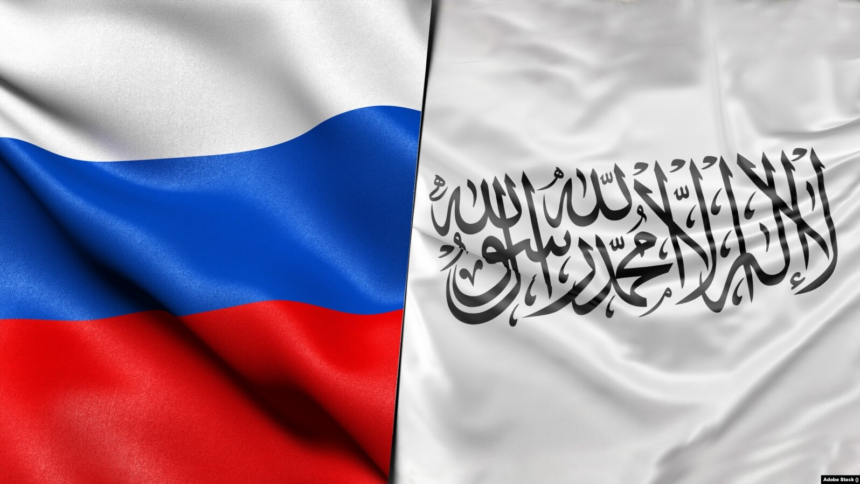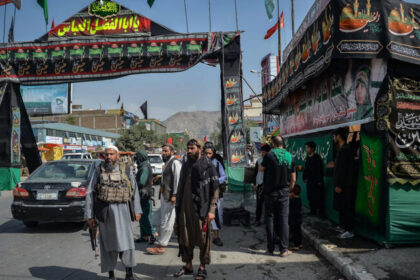RASC News Agency: In a development that raises alarm among human rights defenders and regional analysts, a high-ranking delegation from Russia’s National Security Council recently traveled to Kabul to explore pathways for expanding bilateral cooperation with the Taliban regime. The move, initiated by a directive from President Vladimir Putin, is widely viewed as part of Moscow’s broader strategy to secure influence in Central Asia regardless of the Taliban’s ongoing repression of basic freedoms and the dismantling of democratic institutions in Afghanistan. Sergei Shoigu, Secretary of Russia’s National Security Council, confirmed the visit during the 13th International Meeting of Senior Security Officials held in Moscow. According to Shoigu, the delegation was tasked with initiating discussions with Taliban representatives on trade, transit, agriculture, and the exploitation of Afghanistan’s untapped natural resources an engagement that effectively places economic interests above human rights concerns.
“In accordance with President Putin’s instructions,” Shoigu stated, “a team from the National Security Council was dispatched to Afghanistan to examine opportunities for expanding cooperation. Talks addressed transportation corridors, mineral resource development, agriculture, and bilateral trade.” This diplomatic engagement took place in parallel with a major security conference hosted by the Russian Ministry of Defense from May 26–28, at which for the first time a Taliban delegation was formally invited and participated. Their inclusion in such a high-profile international event marks a disturbing shift in Taliban diplomacy: from global pariah to potential geopolitical partner.
The Taliban’s presence at the Moscow summit is being interpreted as a signal that Russia is prepared to normalize relations with a regime that has systemically dismantled the rights of women, silenced civil society, and imposed a draconian interpretation of Islamic law. Human rights groups argue that such gestures from global powers only serve to embolden the Taliban’s unchecked authoritarianism. In a related development, Shoigu proposed the reactivation of the Afghanistan Contact Group under the umbrella of the Shanghai Cooperation Organization (SCO). He cited the recent decision by Russia’s Supreme Court to suspend the Taliban’s classification as a terrorist organization effectively clearing the path for direct political and security cooperation.
“The court’s decision removes significant legal barriers,” Shoigu noted. “This opens a timely opportunity to reestablish the SCO Contact Group on Afghanistan as a platform for engagement.” Since the Taliban’s violent seizure of power in August 2021, no Afghanistani delegation has been permitted to formally participate in SCO summits. Nevertheless, President Putin has consistently expressed support for reviving the Contact Group arguing, controversially, that such a step could promote stability in Afghanistan. Critics, however, warn that engaging the Taliban in high-level diplomacy grants them undue legitimacy, even as they continue to enforce a regime of gender apartheid and suppress all forms of political opposition.
By lifting legal restrictions and extending diplomatic courtesies to the Taliban, Moscow is contributing to a dangerous precedent: the normalization of a regime that thrives on the systematic erasure of women from public life, the suppression of media, the destruction of civil institutions, and the persecution of minorities. While Russia’s strategic calculus may be driven by a desire to counterbalance Western and Chinese influence in the region and to tap into Afghanistan’s vast mineral reserves the cost of this engagement is profound. The Taliban regime remains one of the most repressive in the world, having turned Afghanistan into a prison for women and a graveyard for democratic aspirations.
Moscow’s embrace of the Taliban represents not merely a geopolitical shift, but a moral abdication placing economic and strategic interests above the rights and dignity of millions of Afghanistani citizens who continue to suffer under the Taliban’s brutal rule. As global actors weigh the implications of Russia’s approach, the question remains: Will the international community resist the tide of authoritarian normalization, or will it remain complicit in the legitimization of tyranny under the guise of diplomacy?






